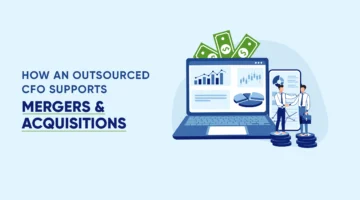Comptroller or Controller, Which Do You Need?
A well-run accounting and finance department is one of the most important parts of running a business. An important part of a well-run accounting and finance department is a supervisor. You will need a controller or a comptroller to keep your accounting and finance department running like a machine.
The terms “comptroller” and “controller” are often interchanged in the world of business. Which is which? Are they different? Which one does your company need?
What is a Controller?
A controller is the highest-ranking member of a company’s accounting and finance department. If the organization has a Chief Financial Officer (CFO), the controller serves as the primary support to the CFO. In either situation, controllers are responsible for overseeing all the financial reporting in a company.
This means the controller is responsible for reporting to shareholders, government entities, creditors, and other financial parties. In addition to ensuring the company has accurate and timely financial reporting, the controller is also responsible for ensuring that the company adheres to all local, state and federal laws.
What is a Comptroller?
A comptroller is also the highest-ranking member of an entity’s accounting and finance department. They share many of the same responsibilities as a controller, but they also serve as the entity’s CFO. In other words, a comptroller is the highest-ranking financial employee in the organization, not just the accounting and finance department.
In addition to being responsible for financial reporting and legal compliance, the comptroller maintains the budget and cashflow forecast for the organization’s fiscal year. The comptroller must also report to taxpayers and other financial parties.
Controller Vs Comptroller: Major Differences
The primary difference between a controller and a comptroller is the type of organization at which they work. A controller serves for-profit companies in both the private and public sectors. In contrast, a comptroller typically serves non-profit organizations and government agencies.
With this major difference comes a difference in general responsibilities. Controllers typically serve as a supervisor for the entire accounting and financial department, but their primary concern is a responsibility to the shareholders and management. However, because the comptroller answers directly to the taxpayer, they are required to take responsibility for the work of their entire team.
This means that a controller’s team has a degree of independence, but a comptroller must review each of their employees’ work. It is also especially important that the expenses of a non-profit or government organization not go over what is budgeted since resources are limited. Therefore, the person in the comptroller’s position must be more focused on compliance than perhaps a controller.
Priority Focus
One other large difference between controllers and comptrollers is what they focus on during day-to-day operations. Comptrollers focus mainly on financial reporting while controllers put their focus on fund accounting.
Financial Reporting
Financial reporting methods monitor a company’s profitability. These reports include budget analyses, compliance reports, cashflow forecasts and more. These methods are used in for-profit businesses to measure financial success via profitability.
Fund Accounting
Fund accounting is an accounting system for funding that has been limited, either by a donor or a government allocation. This method of accounting mainly emphasizes accountability for how the funds were used rather than profitability.
The Bottom Line
Controllers put their focus on the financial performance of an organization externally, while a comptroller puts their focus on the internal financial performance of an organization.
A controller must ensure the company is profitable and that the shareholders are seeing returns. A comptroller needs to ensure that the company is using their finances responsibly internally. Comptrollers focus on the allocation of funds while controllers focus on the overall cost of running a business.
The first step to an efficient accounting and finance department is the right leader for the job. Ultimately, whether your company needs a controller or a comptroller comes down to the type of organization you are running.
Learn More: Controller vs. CFO: Choosing Your Financial Navigator for Success



